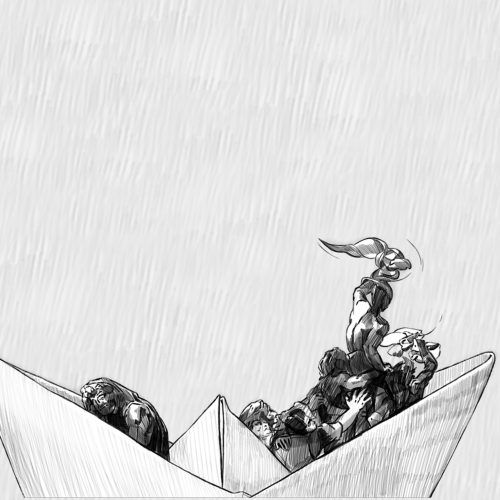New asylum law in Greece
On October 31, 2019, the Greek government introduced new asylum legislation in parliament. The aim of the 237-page document, entitled “international protection and other provisions”, is speeding up the procedures to return migrants to Turkey if they do not meet the requirements to be granted asylum, under the EU-Turkey deal signed in 2016. One of the points of the EU and Turkey agreement is that all new irregular migrants crossing from Turkey into Greek islands would be returned to Turkey. There are nearly 70,000 asylum pending applications in Greece, according to Greek Prime Minister Kyriakos Mitsotakis.
The bill was approved by the conservative New Democracy government, which is in office since July 2019, with support from the center-left Movement for Change alliance. The left-wing Syriza party, the Communist Party of Greece and the left-wing European Realistic Disobedience Front (MeRA25) of former finance minister Yanis Varoufakis, as well as the right-wing Greek Solution party, voted against.
Over 55,300 people migrated to Greece in 2019 so far, according to the Operation Portal of Refugee Situation on the UN Refugee Agency (UNHCR). Greece received more arrivals of migrants this year than Spain, Italy, Malta, and Cyprus combined, according to UNHCR. There were 43,683 new sea-arrivals from January to October 2019 and 11,665 land-arrivals. Most of them are people from Afghanistan (38,2%) and Syria (25,3%) fleeing war. Currently, there are more than 1,000 unaccompanied refugee minors in Greece.
Humanitarian organizations have repeatedly warned on the appalling conditions of 13,500 people living at Moria refugee camp on the Greek island of Lesbos. “EU’s abject failure to manage the deplorable situation of refugees in Greece,” said Amnesty International’s Research Director for Europe Massimo Moratti in a communiqué after a woman died in a fire in the camp in September. Amnesty International communiqué says that the EU-Turkey deal “has only made the situation worse” denying “thousands of people trapped on the Aegean Islands their dignity and violated their rights.”























